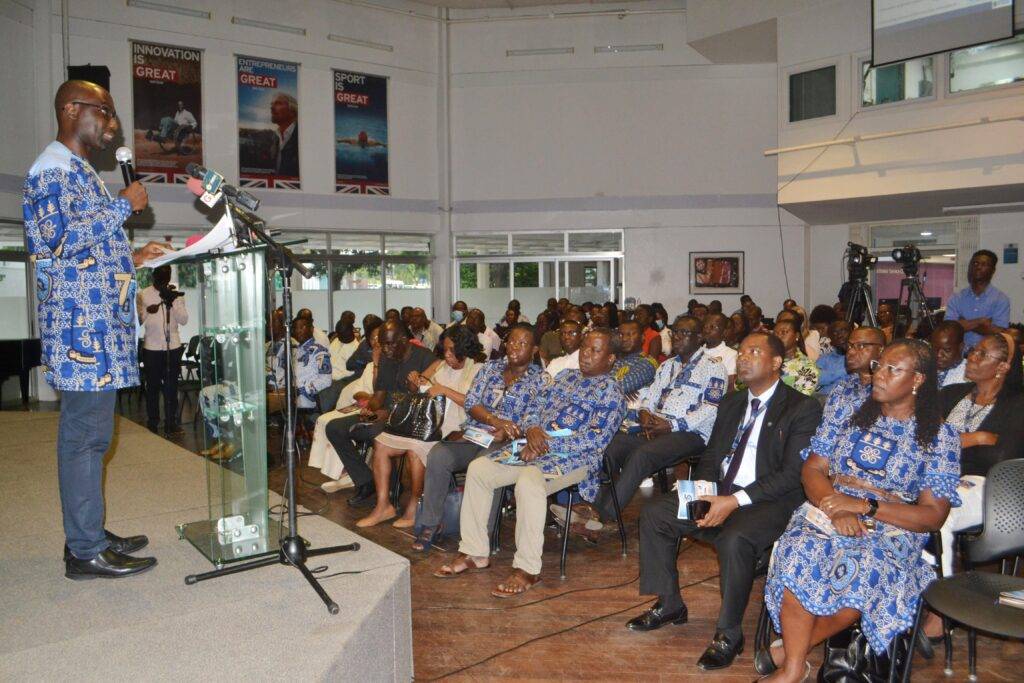
The Dean of the School of Public Health, University of Ghana, Professor Richmond Aryeetey, has cautioned against the consumption of bigger fishes, especially by pregnant women.
According to him, mercury washed into water bodies by illegal mining activities are picked up by fish and sea food and when eaten by pregnant women, affects the intellectual make-up of fetuses.

Prof. Richmond Aryeetey speaking at the programme Photo Victor A. Buxton
“Currently, there is no policy related to fish and mercury but there is evidence that when small fish consume methyl mercury, they get eaten by bigger fishes which accumulates a lot more mercury. Because of that I will say if you are a pregnant woman, eat smaller fishes,” he said.
Professor Aryeetey gave this caution at the 6th Biennial Lecture of the College of Health Sciences of the University of Ghana in Accra on Friday.
Illegal mining activities, Professor Aryeetey stated, releases toxic chemicals into water bodies which exposes not only the miners but their immediate communities to functional impairment or disability.
“Heavy metals produced when the earth is excavated during mining affects different parts of the body like the nerve, lung, skin, kidney, brain and the reproductive organs, increasing the public risk to hypertension, heart attack, and kidney failures.”
About 81 tonnes of mercury, he revealed, was released into the environment annually through amalgamation and burning of amalgam.
These high levels of mercury released into the environment without any containment efforts, Professor Aryeetey said was worrying as children were at higher risk of nervous effects.
To this end, he said Ghana needed a policy on food contamination by mercury and hard metals to address the high concentration of hazardous substances in water and food.
Developing such a policy would be in accordance with the Minanata Convention which seeks to limit human exposure to mercury to protect human health and the environment from hazardous substances, he said.
The exposure to mercury in West Africa, Professor Aryeetey said was reducing the quality of life of the people with estimated 3.3 to 6.5 million people suffering from chronic metallic vapour intoxication.
Non Communicable Diseases (NCDs) including mercury induced ones, he said were on the rise with estimated 41 million deaths annually accounting for 74 per cent of all deaths globally.
“We need to find ways to address NCDs and if “galamsey” is going to contribute to that, then this is going to make matters more challenging,” he cautioned.
Professor Aryeetey advocated alternative livelihoods for illegal miners for their activities put everybody at risk as he charged the powers that be to take a strong stand against the menace to reduce its effect on citizens to the barest minimum.
BY JULIUS YAO PETETSI






